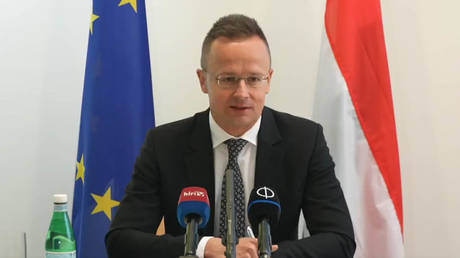As of the 11th of December the BBC is still not acknowledging a key favourite to win the GOP Republican presidential nomiee in Iowa.
The BBC’s blatant bias and partiality could severely damage their credibility if and when a candidate wins the Iowa nomination who the BBC has not even acknowledged exists.
Ron Paul is currently 2nd favourite to win the Iowa nomination and yet the BBC is not mentioning his name and the BBC insists on continuing with the line that Newt Gingrich is the favourite, missing second place (Ron Paul) and then highlighting the place candidate.
As if to amplify the absurdity of the BBC’s reporting policy and to eliminate any doubts you may have had that the BBC was impartial you have this BBC article which should confirm for even the biggest BBC supporter that BBC journalism is no fairer or higher quality or any more impartial than any other major corporate media outlet.
The days of BBC impartiality finished with Greg Dyke. Considering the BBC is funded by the public the BBC has turned into a people funded government propaganda machine. The British people are paying to propagandize themselves.
This is a link to a BBC article from the 16th 2011
And this is a report from a local Iowa paper from the 15th of December 2011
These 2 links are intended to illustrate the differences between a slighty impartial news source and one that is not impartial
Okay, so why the international news blackout on Ron Paul?
Simple, politicians around the world do not want a US president who believes the threat of force is an unacceptable way to run a government.
Politicians around the world are terrified that they may have to explain to their electorate why the threat of physical violence is necessary for people to pay taxes if the “great” services offered by governments are what people want.
Sources
BBC Republican debate: Romney and Gingrich defend positions
Newt Gingrich and Mitt Romney sought to stay positive and avoid major gaffesContinue reading the main storyUS Presidential Election 2012
Where do they stand?How do you run for president?Who’s backing whom?GlossaryRepublican presidential front-runners Newt Gingrich and Mitt Romney were forced to defend their records, in the final TV debate before primary season.
Mr Gingrich was challenged over his work with federal housing firm Freddie Mac, while Mr Romney had to explain his stances on gay marriage and abortion.
The two rivals played it safe, but their conservative credentials were assailed by lower-tier candidates.
The eventual nominee faces Democratic President Barack Obama next November.
Thursday night’s two-hour forum, hosted by Fox News in Sioux City, Iowa, also featured Texas Republican Ron Paul, Minnesota Congresswoman Michele Bachmann, Texas Governor Rick Perry, former Utah Governor Jon Huntsman and former Pennsylvania Senator Rick Santorum.
‘Scam’In his opening remarks, Mr Gingrich challenged the president to series of lengthy policy debates: “I believe I can debate Barack Obama and I think in seven three-hour debates, Barack Obama will not have a leg to stand on in trying to defend a record that is terrible and an ideology that is radical.”
Mr Romney lambasted President Obama for trying to “appease or accommodate the tyrants of the world”, criticising his approach to retrieving a drone which recently went down in Iran.
“Foreign policy based on pretty please? You have to be kidding,” Mr Romney said.
Continue reading the main storyAnalysis
Steve KingstoneBBC News, WashingtonYou almost suspected Mitt Romney and Newt Gingrich had agreed a non-aggression pact in advance. Neither went for the jugular, despite several invitations from the moderators, and at times they traded compliments. Mr Romney, in particular, seemed to have concluded that all-out attack would be counter-productive in the final debate before Iowans have their say at the hustings.
Ron Paul started out like a man who had a faint whiff of victory in his nostrils, repeatedly marketing his long-held views on monetary policy and the constitution as “electable”. But his pitch to Iowa’s undecided voters unravelled on Iran, where he began to sound rantingly out of touch with mainstream Republican thought.
Of the rest, Michele Bachmann made a strident effort to outflank Mr Gingrich from the right. And Rick Perry had one of his best debates – mixing punchy criticism of “Washington” with self-deprecatory humour. But sadly for Mr Perry’s candidacy, this is not the debate history will remember him for.
He chose not to take the bait when the moderator asked whether he would like to respond to a previous challenge by Mr Gingrich that the former governor of Massachusetts should give back the millions he earned bankrupting companies while working at a private equity group.
“I think the president will level the same attack,” Mr Romney said. “In the real world that the president has not lived in… not every business succeeds.”
While the two front-runners sought to stay positive, despite increasingly barbed attacks in their day-to-day campaigns, they came under fire from Mrs Bachmann and Mr Santorum.
Mrs Bachmann forcefully assailed Mr Gingrich for collecting “influence-peddling” fees from government-owned mortgage lender Freddie Mac, which is blamed by many conservatives for America’s home foreclosure crisis. She said his role had been to “keep the scam going”.
“What she just said is factually not true,” Mr Gingrich shot back. “I never lobbied under any circumstances.”
Mr Santorum attacked Mr Romney, saying he handed out gay marriage licences as governor of Massachusetts.
But Mr Romney said the Massachusetts Supreme Court had ruled that gay marriage was legal, and that he had simply abided by that decision, while trying to have it overturned.
Mr Romney also acknowledged he used to favour abortion rights, but said he changed his mind as governor when he faced a bill that would have allowed experimentation on embryos.
After being given up for politically dead earlier this year, Mr Gingrich surged to the front of the pack last month as early contenders Rick Perry and Herman Cain saw their support collapse amid gaffes and sex scandals.
While Mr Gingrich retains the lead nationally, he fell to second place in Iowa in a Rasmussen Report opinion poll on Thursday.
In the survey, Mr Romney won the support of 23% of voters, while Mr Gingrich was on 20%, two points ahead of Ron Paul.
On 3 January, Iowa will hold the first in a series of state-by-state non-binding votes, known as primaries and caucuses, to pick a Republican nominee. The eventual candidate will be officially declared at the national party convention next August.
A strong showing in Iowa would provide momentum going into New Hampshire, which votes on 10 January, and the more populous South Carolina and Florida, which vote on 21 January and 31 January, respectively.
—————-
Ron Paul surges on Iowa Electronic Markets12:45 PM, Dec. 15, 2011 | 4 Comments AA Written bythe Press-Citizen
FILED UNDERNewsLocal NewsUniversity Of IowaADS BY PULSE 360 AdChoices From University News Services
Traders on the Iowa Electronic Markets are increasingly sure that Ron Paul will be among the top finishers in next month’s Iowa GOP caucuses while Mitt Romney is in the midst of a sharp decline.
Paul’s contract was trading at 82.4 cents on the IEM’s Iowa Caucus market Thursday morning, which means traders believe he has an 82.4 percent probability of finishing in the top 2 in the GOP caucuses next month. Paul has been trending upward since Nov. 11, when he was selling for just 6 cents on the Caucus market.
Meanwhile, Romney was selling for 30 cents Thursday morning, a sharp drop from the 87 cents his contract had been fetching as recently as Nov. 14.
Newt Gingrich is the other candidate the market believes has the highest probability of finishing in the caucus top 2, with a price of 72.3 cents Thursday morning. Gingrich had been selling for as high as 80 cents on Dec. 11, but has been trending down since.
Michele Bachmann and Rick Perry were selling for less than 10 cents each.
Traders are less certain that Paul will win the GOP nomination, however. On the nomination market, he was trading for only 6.5 cents, which means traders believe he has a 6.5 percent probability of being the party’s nominee to face Barack Obama. Romney is still the most probable nominee, with his contract trading for 52.5 cents Friday morning, though that price is well off his 85 cent high on Nov. 3.
Gingrich is trading for 27 cents on the nomination market.
The Rest of Field contract on the nomination market was trading for 9 cents, which means the markets believe there’s a 9 percent probability that Jon Huntsman, Rick Santorum or some other candidate not yet in the race will be the nominee.
A real money futures market operated by the University of Iowa’s Tippie College of Business, the IEM gives traders from around the world the opportunity to buy and sell contracts based on what they think the outcome of a future event will be. Contracts for the correct outcome pay off at $1, all other contracts pay off at zero. As a result, the price of the contract at any given time is the probability that the traders believe that event will happen. Traders can invest up to $500 in the market.





More Stories
Why Greeks Want The Bailouts To Stop
Banks – Have Governments Forgotten Their Purpose?
Lagarde List – Does Greece Have The Dumbest Media & Politicians In Euro Zone?